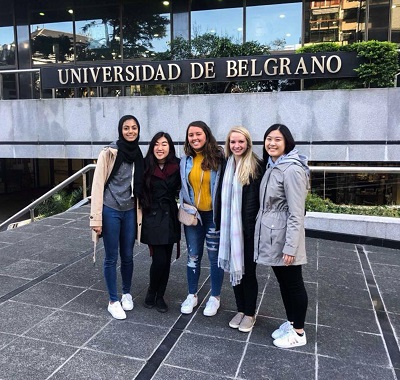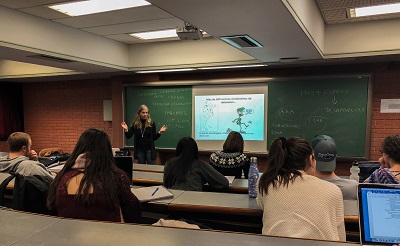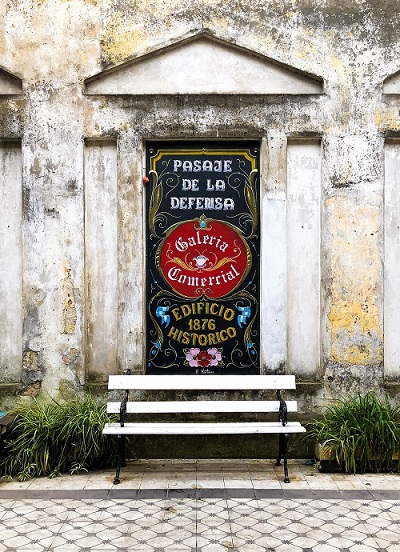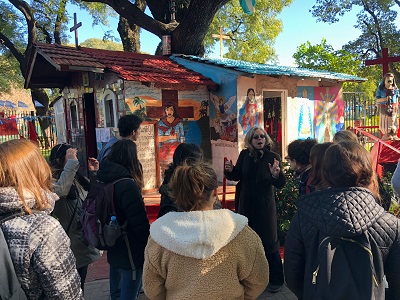During my summer abroad in Buenos Aires, I chose to take a class on civilization and culture. This would be the perfect way to learn more about Argentina’s history as well as understand the roots of the culture itself.
 I never went to school in a different country before, so I wasn’t sure what to expect of the curriculum, class size, or how exams would be. I found that class sizes were the same as my Spanish classes back home. My section had about 15 or so students, which allowed our professor to give quality attention to each of us and ensure we absorbed the material fully. We went on cultural excursions every week to museums, cities and parks to come full circle with what we learned inside the classroom. After every museum visit, we wrote a small reflection on what we saw from our visits and how that ties into what we spoke about in class. We had one final exam at the end, and it was entirely written. Professor Anderson always spoke in Spanish, just like my Spanish professors at my home university. She always answered all our questions concisely and was very warm and welcoming if we were confused about anything. I found the inside-classroom experience to be pretty in-line with my classes in the U.S. Of course, the entire experience of going to a university in a different country is a unique experience in itself.
I never went to school in a different country before, so I wasn’t sure what to expect of the curriculum, class size, or how exams would be. I found that class sizes were the same as my Spanish classes back home. My section had about 15 or so students, which allowed our professor to give quality attention to each of us and ensure we absorbed the material fully. We went on cultural excursions every week to museums, cities and parks to come full circle with what we learned inside the classroom. After every museum visit, we wrote a small reflection on what we saw from our visits and how that ties into what we spoke about in class. We had one final exam at the end, and it was entirely written. Professor Anderson always spoke in Spanish, just like my Spanish professors at my home university. She always answered all our questions concisely and was very warm and welcoming if we were confused about anything. I found the inside-classroom experience to be pretty in-line with my classes in the U.S. Of course, the entire experience of going to a university in a different country is a unique experience in itself.

To say I approach my classes the same way after studying abroad would be a lie. After you’ve been placed in an environment where you have to step out of your bubble, you realize you really can accomplish things that may as well be close to impossible. When you’re studying abroad, you’re far from your comfort zone -- and this is where the most growth and learning happens. You have no choice but to meet the goal, and you do!

After studying on the opposite side of the equator, I definitely have a stronger vigor for my academic pursuits. My Spanish classes will never seem the same now; not only have my Spanish ability and learning skills skyrocketed, but I can see the same learning improvements across my science classes as well. Living and learning in a whole other culture and language allows for the development of the greatest skill of all time: navigating across different cultures, languages, and perspectives efficiently and effectively.


Contributed by ambassador Zainab Bhojani








